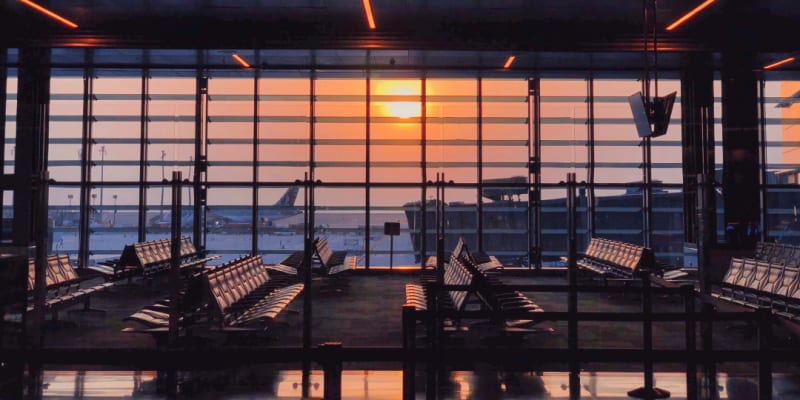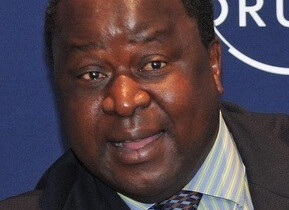On 11 February 2021, President Ramaphosa gave his much-anticipated State of the Nation Address. One piece of news was especially welcomed by the tourism and hospitality industry, which is the extension of the UIF TERS scheme from 16 October 2020 to 15 March 2021 “for those that have not been able to operate”. The President added, “The conditions of this extension and the sectors to be included will be announced after consultations with social partners at (NEDLAC) National Economic Development and Labour Council.”
“The conditions of this extension and the sectors to be included will be announced after consultations with social partners at (NEDLAC) National Economic Development and Labour Council.”
The following day, 12 February, the Department of Employment and Labour put out a statement saying: “It is envisaged that sectors that are not fully operational since the beginning of the lockdown will require and may receive assistance. These include the tourism, hospitality, liquor industry and related sectors within that value chain.”
David Frost, CEO of the Southern Africa Tourism Services Association (SATSA), says he is hopeful that NEDLAC will include tourism in the list of sectors the UIF TERS extension will apply to; “We eagerly await clarity on the conditions and deadlines that will apply and urge government not to delay in communicating this to the public.”
Frost adds that the Tourism Business Council of South Africa (TBCSA), which SATSA is a member of, has been lobbying for the reinstation of the UIF’s Covid-19 Temporary Employee Relief Scheme since it came to an end in mid-October 2020. He says, “Despite the reopening of international borders, the ban on SA travel by several countries around the world, has resulted in an unworkable trading environment for local tourism businesses, with many being forced to close doors. The reality is that until we see the evidence of an expedited vaccination programme in South Africa, tourism businesses will continue to struggle – and be reliant on relief measures such as UIF TERS to keep staff on the payroll.”
“The reinstatement of UIF TERS for the travel industry would be an important step towards saving hundreds of thousands of tourism jobs in an industry on the verge of collapse.”
The CEO of the Association Of Southern African Travel Agents (ASATA), Otto de Vries, says, “The end of 2020 into the beginning of 2021 saw border closures and stricter travel restrictions around the world – as well as the announcement from numerous airlines that they will delay, limit or cancel their operations in and out of South Africa. A significant number of countries around the world, including Australia, Algeria, Belgium, Brazil, Canada, Croatia, Dubai, France, Germany, Hong Kong, Ireland, Israel, Italy, Mauritius, the Netherlands, New Zealand, Spain, Singapore, Qatar, the UK and the US have instituted travel bans from South Africa in the wake of concerns around the ‘South African variant’ – B.1.351. These countries form by far the largest portion of our outbound travel market.”

He continues, “These obstacles combined with the alcohol ban, beach closures, curfew and the restrictions on public swimming pools during the height of season have meant that the travel industry has been, quite literally, unable to operate. The reinstatement of UIF TERS for the travel industry would be an important step towards saving hundreds of thousands of tourism jobs in an industry on the verge of collapse. We’re desperate for support for operators, establishments, guides and staff across the value chain who are unable to work due to almost zero occupancy, zero international visitors and no short-term signs that the situation will improve.”
A recent survey of 200 FEDHASA members showed an anticipated average revenue decline of 72% when comparing February, March and April 2021 with the same period in 2019.
Rosemary Anderson, Chairperson of the Federated Hospitality Association of South Africa (FEDHASA), reveals that a recent survey of 200 of the association’s members showed an anticipated average revenue decline of 72% when comparing February, March and April 2021 with the same period in 2019. This is across both accommodation and food and beverage businesses. In addition, 95% of respondents cited salaries as their biggest cost concern.
She says, “The hospitality industry, in particular, has been amongst the sectors hardest hit by lockdown measures with no business left unscathed, from the large group brands all the way down to a modest tavern or small coffee shop. Many have been unable to reopen, despite the easing of certain regulations in recent days, specifically due to the absence of international and corporate travel, as well as restrictions on operating hours and limits on customer capacity.”

Anderson echoes Frost’s sentiments about the urgency of rolling out the Covid-19 vaccination programme, and therefore welcomed the President’s update on the progress being made towards this end. This includes securing 9 million doses of the Johnson & Johnson vaccine (a single dose Covid-19 vaccine), with 80 000 doses arriving next week and a further 500 000 arriving over the next four weeks. In addition, 12 mission doses of vaccines have been secured through the global COVAX facility and Pfizer has committed to start delivering 20 million doses at the end of the first quarter.
“We look forward to more detail on this in the coming weeks as the reality is that a third wave and further restrictions would be the final nail in the coffin for many hospitality businesses,” adds Anderson.
To read the full transcript of the President’s State of the Nation Address, click here.
For those who have valid and outstanding COVID-19 UIF TERS Benefit claims that are already in the system, the Department of Employment and Labour has confirmed that these will continue to be processed and paid.







